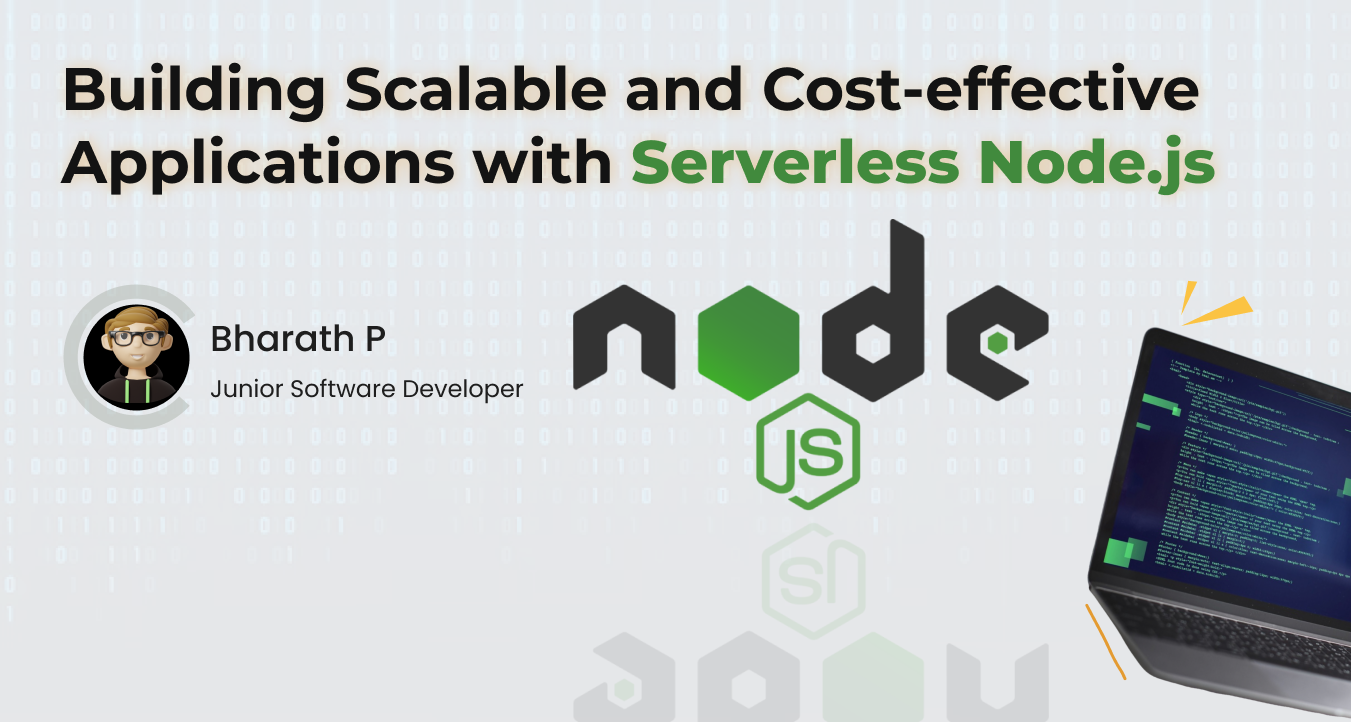Serverless computing is quickly becoming more and more popular in the software development industry and for good reason. It frees developers from worrying about overseeing the underlying infrastructure so they can concentrate on creating and deploying their apps. We will examine serverless computing and provides node js development service, which is one of the most widely used programming languages for web development.
What is Serverless Computing?
The term "serverless computing," often referred to as "Function-as-a-Service" (FaaS), refers to a cloud computing architecture where the infrastructure is managed by the cloud provider, who also grows the resources automatically in response to application demand. Since server maintenance, capacity planning, and resource management are not a concern, developers can concentrate on building code and delivering their applications using serverless computing.
The term "serverless" refers to a situation in which the cloud provider manages the servers rather than there being no servers at all. When particular events, such as HTTP requests, database updates, or file uploads occur, developers write short pieces of code, known as functions, which are subsequently executed.
Why use Serverless with Node.js?
Node.js is a popular choice for serverless computing because of its event-driven architecture and non-blocking I/O. It can be quickly deployed on a serverless platform like AWS Lambda, Google Cloud Functions, or Microsoft Azure Functions and is very lightweight.
Using Node.js with serverless computing offers several benefits:
- Scalability: Serverless platforms automatically scale resources based on application demand, allowing developers to handle sudden spikes in traffic without worrying about capacity planning.
- Cost-Effectiveness: Developers only pay for the resources used when a function is executed, rather than paying for a fixed amount of resources that may go unused.
- Flexibility: Developers can choose the programming language and runtime environment that best suits their needs. Node.js is a lightweight and flexible runtime that can be used for a wide range of applications.
- Speed: Node.js is fast and efficient, allowing developers to write and deploy applications quickly.
Importance of Serverless Node.js
Serverless with Node.js has several advantages that make it an important choice for building applications. Here are some of the key importance of using Serverless with Node.js:
- Simplified deployment and management: It is simple to deploy and maintain your Node.js functions using serverless frameworks like the Serverless Framework or AWS Lambda. You may concentrate on developing code while leaving infrastructure setup, scaling, and operational chores like logging and monitoring to the framework.
- Faster development cycles: Serverless architectures enable faster development cycles by abstracting away the underlying infrastructure. You can quickly iterate and deploy changes without worrying about provisioning servers or managing infrastructure dependencies. This agility allows you to deliver features and updates to your application more rapidly.
- Automatic scaling and high availability: Serverless platforms automatically scale your Node.js functions in response to events or incoming requests. This implies that your application can handle sudden spikes in traffic or demand without the need for manual intervention. Additionally, serverless solutions offer built-in high availability, which distributes your application across several availability zones to guarantee dependability and fault tolerance.
- Reduced operational overhead: You won't have to bother about patching, operating system updates, or server maintenance if you use Serverless. Because the cloud provider is in charge of managing the infrastructure, you may concentrate on creating application logic rather than dealing with routine system administration duties. This can free up resources for other crucial duties and drastically lower operational overhead.
- Event-driven architecture: Serverless architectures are well-suited for event-driven workflows. You can trigger your Node.js functions in response to events from various sources like API calls, database updates, message queues, or scheduled tasks. This event-driven approach encourages loose coupling and makes it possible to create scalable, modular applications.
Learn how to use Serverless Node.js
To get started with serverless Node.js, you will need to choose a serverless platform, such as AWS Lambda, and install the appropriate tools and libraries.
- Install Node.js and NPM: Node.js is required to run the serverless functions. NPM is the Node Package Manager, which is used to install packages and dependencies.
- Choose a Serverless Platform: Choose a serverless platform such as AWS Lambda, Google Cloud Functions, or Microsoft Azure Functions.
- Install Serverless Framework: The Serverless Framework is a well-known open-source framework for creating serverless applications. For installing and administering serverless activities, it offers a straightforward and simple interface.
- Create a Function: Using your favorite code editor, such as VS Code, create a Node.js function and specify the function handler. The handler, which is called when the function is activated, serves as its entry point.
- Deploy the Function: For the function to be deployed to your serverless platform, use the Serverless Framework. The function's deployment and configuration will be handled automatically by the framework.
Conclusion
Serverless computing with Node.js offers developers a flexible and cost-effective way to build and deploy applications. With serverless computing, developers can focus on writing code and delivering value to their users, without worrying about server management or capacity planning. If you're looking for a lightweight and scalable runtime environment for your next project, consider using serverless Node.js.




